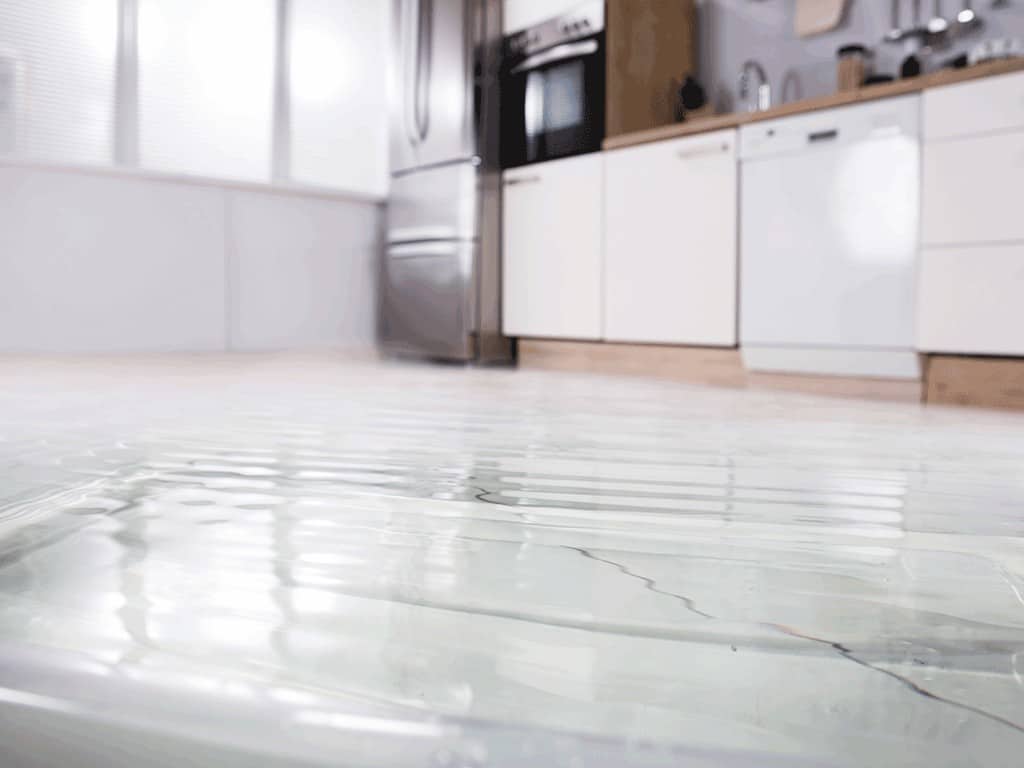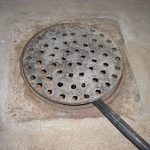If you’re like me, you rely heavily on your dishwasher to clean your dishes quickly and efficiently. However, there’s nothing more frustrating than discovering a puddle of water on your kitchen floor due to a leaking dishwasher. Not only is it a nuisance to clean up, but it can also cause damage to your floors and cabinets if left untreated.
So why does my dishwasher leak? There are several possible reasons, ranging from simple issues that can be fixed easily to more complex problems that require professional attention. Some of the most common causes of dishwasher leaks include a clogged filter, unlevel unit, damaged door latch or gasket, and issues with the water supply or drain line.
In this article, I’ll explore some of the most common reasons why dishwashers leak and provide tips on how to fix them. By understanding the causes of dishwasher leaks and taking steps to prevent them, you can avoid the hassle and expense of dealing with water damage in your kitchen.
Common Causes of Dishwasher Leaks
As someone who has experienced a leaking dishwasher, I understand the frustration that comes with it. Fortunately, there are a few common causes that can be easily addressed to fix the issue. Here are some of the most common causes of dishwasher leaks:
Worn Out Door Seal
The door seal, also known as a gasket, is located around the perimeter of the dishwasher door. Over time, this seal can become worn out or damaged, allowing water to leak out. To check if the door seal is the culprit, inspect it for cracks, tears, or other signs of wear and tear. If you notice any damage, replace the seal to prevent further leaks.
Clogged Drain Hose
The drain hose is responsible for carrying water out of the dishwasher and into the drain. If this hose becomes clogged with food particles or other debris, it can cause water to back up and leak out of the dishwasher. To fix this issue, disconnect the hose and clean it out thoroughly. You can also use a plumbing snake to remove any stubborn clogs.
Broken Water Inlet Valve
The water inlet valve is responsible for bringing water into the dishwasher. If this valve becomes damaged or worn out, it can cause water to leak out of the dishwasher. To check if the water inlet valve is the issue, inspect it for cracks or other signs of damage. If you notice any issues, replace the valve to prevent further leaks.
By addressing these common causes of dishwasher leaks, you can prevent further damage to your kitchen and appliances. However, if you are unsure of how to fix the issue or if the problem persists, it is always best to consult a professional.
How to Fix a Leaking Dishwasher
Inspect the Door Seal
If your dishwasher is leaking, the first thing to check is the door seal. Over time, the seal may become damaged or dirty, preventing it from creating a tight seal. To inspect the door seal:
- Open the dishwasher door and inspect the seal for any visible damage or dirt.
- If the seal is dirty, wipe it down with a damp cloth and mild detergent.
- If the seal is damaged, it will need to be replaced. Contact a professional or refer to your dishwasher’s manual for instructions on how to replace the seal.
Check the Drain Hose
Another common cause of dishwasher leaks is a clogged or damaged drain hose. To check the drain hose:
- Turn off the power to the dishwasher and disconnect the drain hose from the sink or garbage disposal.
- Inspect the hose for any visible damage or clogs.
- If the hose is damaged, it will need to be replaced. Refer to your dishwasher’s manual for instructions on how to replace the drain hose.
- If the hose is clogged, use a straightened coat hanger or plumbing snake to remove the blockage.
Replace the Water Inlet Valve
If neither the door seal nor the drain hose is the cause of the leak, the problem may be a defective water inlet valve. To replace the water inlet valve:
- Turn off the power to the dishwasher and disconnect the water supply.
- Locate the water inlet valve, which is typically located at the bottom of the dishwasher.
- Remove the valve and replace it with a new one. Refer to your dishwasher’s manual for instructions on how to replace the water inlet valve.
When to Call a Professional
While some dishwasher leaks can be fixed with simple DIY repairs, there are times when it’s best to call in a professional. Here are a few situations where you may want to consider hiring a pro:
If the Leak Persists
If you’ve tried all the DIY fixes and the leak persists, it may be time to call in a professional. A persistent leak can cause water damage to your floors or cabinets, and can even lead to mold growth if left untreated. A professional can help diagnose the problem and make the necessary repairs to stop the leak.
If You’re Not Comfortable with DIY Repairs
If you’re not comfortable working with plumbing or electrical components, it’s best to leave the repairs to a professional. Dishwashers are complex appliances, and attempting to fix a leak without the proper knowledge or tools can be dangerous. A professional can make the necessary repairs safely and efficiently.
Remember, if you’re not sure whether you need to call a professional, it’s always better to err on the side of caution. A small investment in a professional repair now can save you a lot of money and headaches down the road.
Conclusion
After researching and analyzing various sources, I have found that a dishwasher can leak due to various reasons such as a damaged or worn seal, a clogged filter, a leaky door, or an unlevel dishwasher. It is important to address the issue as soon as possible to prevent any further damage to your dishwasher or kitchen floor.
If you notice any water pooling around your dishwasher, the first step is to identify the source of the leak. Check the door gasket, water inlet valve, and drain line for any signs of damage or wear. If you are unsure of how to proceed, it is best to consult a professional plumber or appliance repair technician.
Another important factor to consider is the type and amount of detergent you are using. Using too much detergent or the wrong type of detergent can cause excessive suds and lead to leaks. Make sure to follow the manufacturer’s instructions and use only automatic dishwasher detergent.
Regular maintenance of your dishwasher can also help prevent leaks. Clean the filter and spray arms regularly to ensure proper drainage and water flow. Keep an eye out for any signs of wear or damage and address them promptly.
Overall, a leaking dishwasher can be a frustrating and potentially costly issue. By identifying the source of the leak and taking appropriate steps to address it, you can keep your dishwasher running smoothly and avoid any unnecessary headaches.




